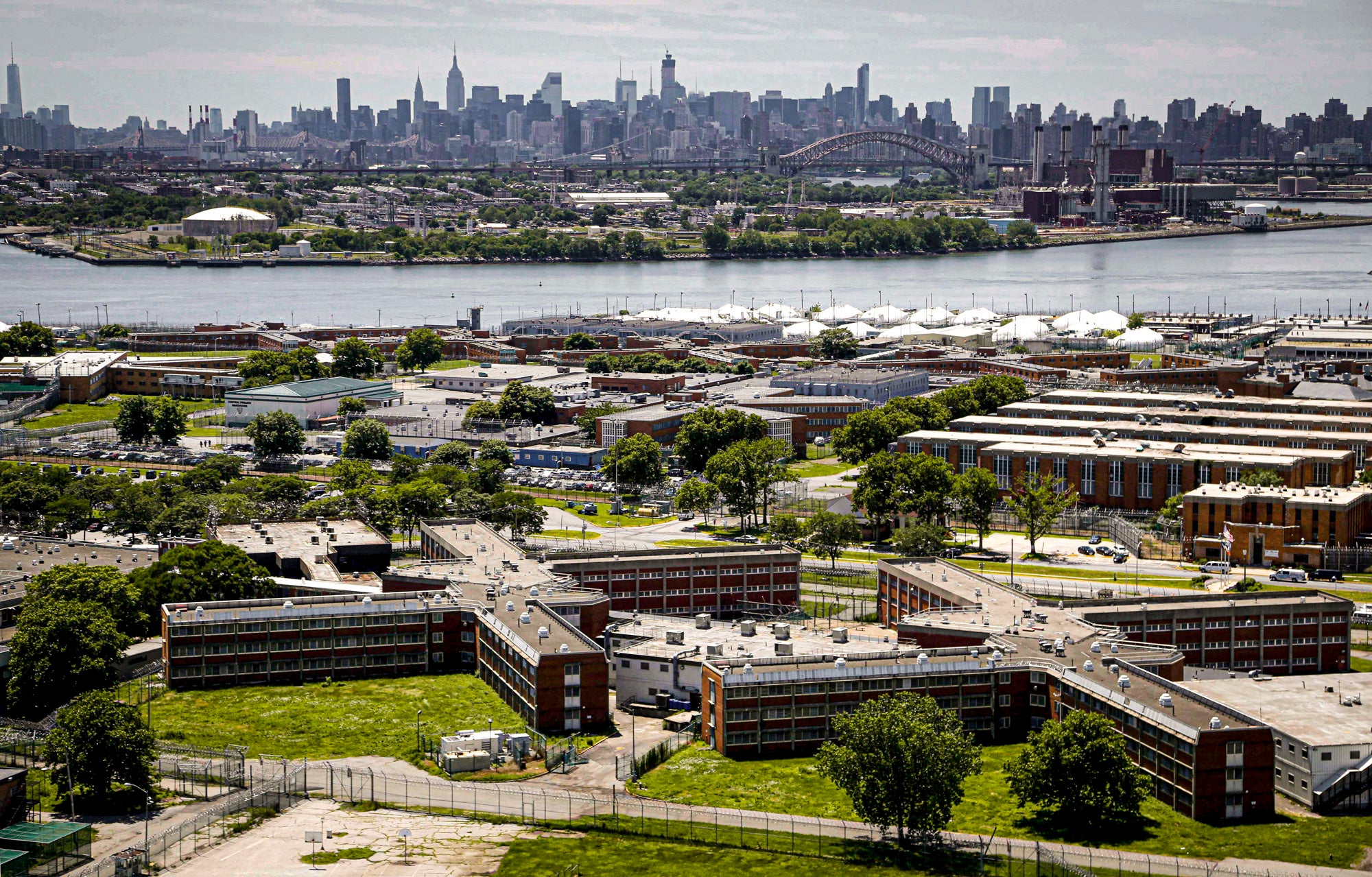NY moving women, trans inmates from Rikers to state lockups
Nearly all female and transgender inmates at New York City’s Rikers Island jail complex will be temporarily transferred to state lockups

Your support helps us to tell the story
From reproductive rights to climate change to Big Tech, The Independent is on the ground when the story is developing. Whether it's investigating the financials of Elon Musk's pro-Trump PAC or producing our latest documentary, 'The A Word', which shines a light on the American women fighting for reproductive rights, we know how important it is to parse out the facts from the messaging.
At such a critical moment in US history, we need reporters on the ground. Your donation allows us to keep sending journalists to speak to both sides of the story.
The Independent is trusted by Americans across the entire political spectrum. And unlike many other quality news outlets, we choose not to lock Americans out of our reporting and analysis with paywalls. We believe quality journalism should be available to everyone, paid for by those who can afford it.
Your support makes all the difference.Nearly all female and transgender inmates at New York City’s Rikers Island jail complex will be temporarily transferred to state lockups, a move officials touted Wednesday as a way to relieve strain on the city’s failing jails but that advocates slammed as a “rushed, ill-conceived” plan that will deprive inmates of services and support.
Beginning next week, about 230 inmates will be moved to the state-run Bedford Hills Correctional Facility and Taconic Correctional Facility, both in suburban Westchester County Gov. Kathy Hochul said. The city said it will provide daily bus service for visitors to the facilities, which are located next to each other about 33 miles (53 kilometers) north of Rikers Island.
Tina Luongo, of The Legal Aid Society, said the organization is considering legal action to block the transfers, which she said “will create new harms” for inmates by “disrupting their access to due process, their children, families and support networks.” Luongo said she's also concerned that transgender and nonbinary inmates will be cut off from resources and housed in the wrong units.
Hochul's administration has been increasingly involved in trying to help solve what advocates have described as a “humanitarian crisis” at the city's jails, which have been plagued by staggering violence, self-harm, crippling staff absences and the deaths this year of at least 12 inmates.
In recent weeks, state facilities have taken on about 140 male inmates from Rikers.
An additional 240 inmates were released after Hochul signed a law, known as the Less is More Act, limiting incarceration for certain parole violations. The governor has also expanded the use of virtual court appearances in an effort to free up correctional officers from having to take inmates to and from courthouses.
As of Oct. 1, the city’s jail population was 5,588, down from more than 6,000 inmates in mid-September. In recent years, staffing in the city’s jails has plummeted from 10,862 jail guards in the 2017 fiscal year to 8,388 in 2021.
Jonathan Lippman, the former state chief judge who now leads a criminal justice reform think tank, praised Wednesday's transfer announcement as “another sensible step” by Hochul to address the problems at Rikers and suggested it would give affected inmates better access to medical care, recreation and education services at the state facilities.
At the same time, Lippman, the chair of the Independent Commission on New York City Criminal Justice and Incarceration Reform, stressed that the move must remain temporary because transferred inmates will be farther from family, courts and legal services.
“To mitigate this, every woman’s case should be reviewed immediately to determine whether they can be safely released or their cases resolved,” Lippman said in a statement.